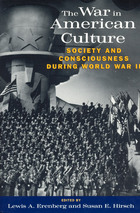RSF: The Russell Sage Foundation Journal of the Social Sciences: The U.S. Labor Market During and After the Great Recession
Russell Sage Foundation, 2017
Paper: 978-0-87154-741-5
See other books on: Kalleberg, Arne L. | Research & Development | RSF | Russell Sage Foundation Journal | von Wachter, Till
See other titles from Russell Sage Foundation
Paper: 978-0-87154-741-5
ABOUT THIS BOOK | AUTHOR BIOGRAPHY | TOC
ABOUT THIS BOOK
The Great Recession was the most disastrous economic upheaval in the U.S. since the Great Depression. Nearly nine million jobs were lost, median family incomes declined by about 8 percent, and the rate of long-term unemployment reached historic highs. Although the recession was officially declared over in June 2009, its effects on the labor market lingered long after. In this issue of RSF, edited by Arne L. Kalleberg and Till M. von Wachter, scholars analyze the longer-term impacts of the Great Recession on jobs, workers, and economic security.
Contributors explore a number of changes to the labor market and union density during and after the Great Recession. Jesse Rothstein investigates the factors contributing to persistently high unemployment and finds that reduced employer demand for workers was more important than labor mismatch—or unemployed workers lacking the appropriate skills for available jobs. Ruth Milkman and Stephanie Luce find increased hostility to unions among employers and steep job losses in traditionally unionized industries, both of which constricted organized labor during and after the Great Recession.
Other articles examine the effects of job loss on unemployed individuals’ mental health and family lives. Kelsey J. O’Connor finds that declining income and rising unemployment contributed to the lowest level of reported happiness in 2010, particularly for men, older people, and Hispanics. William Dickens and coauthors evaluate families’ ability to weather job losses during the Great Recession by relying on savings and find that most had insufficient wealth to buffer large earnings losses for more than a short period of time. Gokce Basbug and Ofer Sharone explore the extent to which the negative emotional toll of long-term unemployment is shaped by gender and marital status. They find that marriage tends to boost the well-being of both men and women during times of unemployment. Among married men, however, this benefit disappeared when controlling for household income, suggesting that the benefits of marriage are related more to additional income than to other forms of intangible or emotional support.
The duration and severity of the Great Recession sets it apart from earlier economic downturns and, as this issue shows, it has had long-term consequences for workers and their families.
Contributors explore a number of changes to the labor market and union density during and after the Great Recession. Jesse Rothstein investigates the factors contributing to persistently high unemployment and finds that reduced employer demand for workers was more important than labor mismatch—or unemployed workers lacking the appropriate skills for available jobs. Ruth Milkman and Stephanie Luce find increased hostility to unions among employers and steep job losses in traditionally unionized industries, both of which constricted organized labor during and after the Great Recession.
Other articles examine the effects of job loss on unemployed individuals’ mental health and family lives. Kelsey J. O’Connor finds that declining income and rising unemployment contributed to the lowest level of reported happiness in 2010, particularly for men, older people, and Hispanics. William Dickens and coauthors evaluate families’ ability to weather job losses during the Great Recession by relying on savings and find that most had insufficient wealth to buffer large earnings losses for more than a short period of time. Gokce Basbug and Ofer Sharone explore the extent to which the negative emotional toll of long-term unemployment is shaped by gender and marital status. They find that marriage tends to boost the well-being of both men and women during times of unemployment. Among married men, however, this benefit disappeared when controlling for household income, suggesting that the benefits of marriage are related more to additional income than to other forms of intangible or emotional support.
The duration and severity of the Great Recession sets it apart from earlier economic downturns and, as this issue shows, it has had long-term consequences for workers and their families.
See other books on: Kalleberg, Arne L. | Research & Development | RSF | Russell Sage Foundation Journal | von Wachter, Till
See other titles from Russell Sage Foundation












